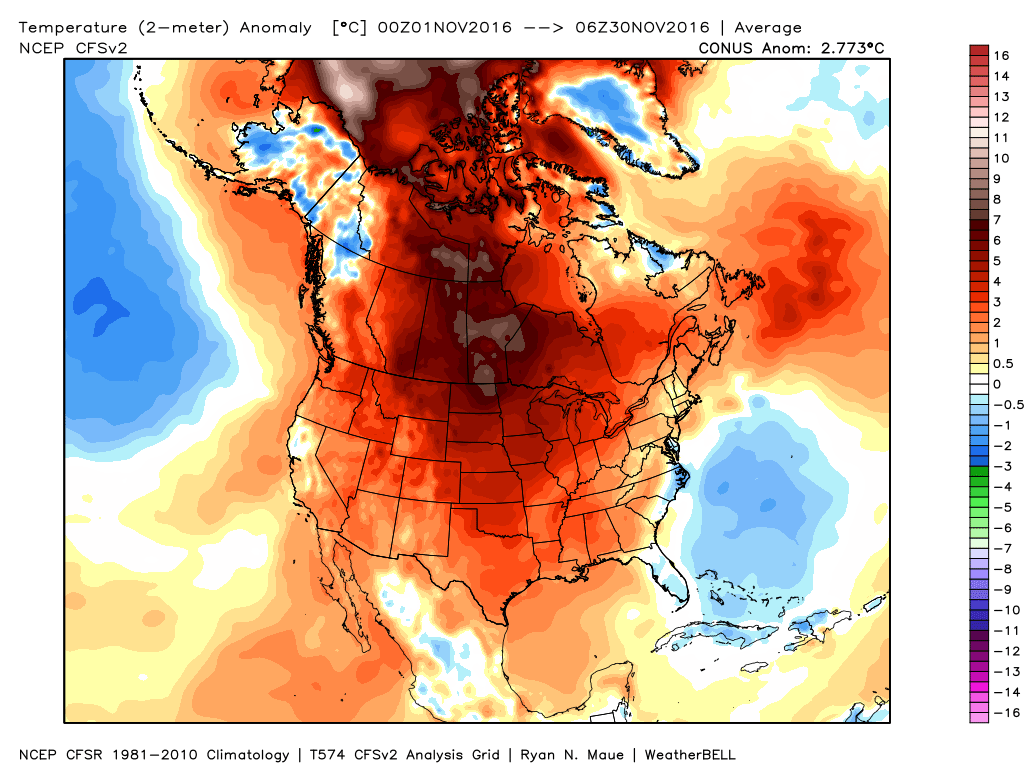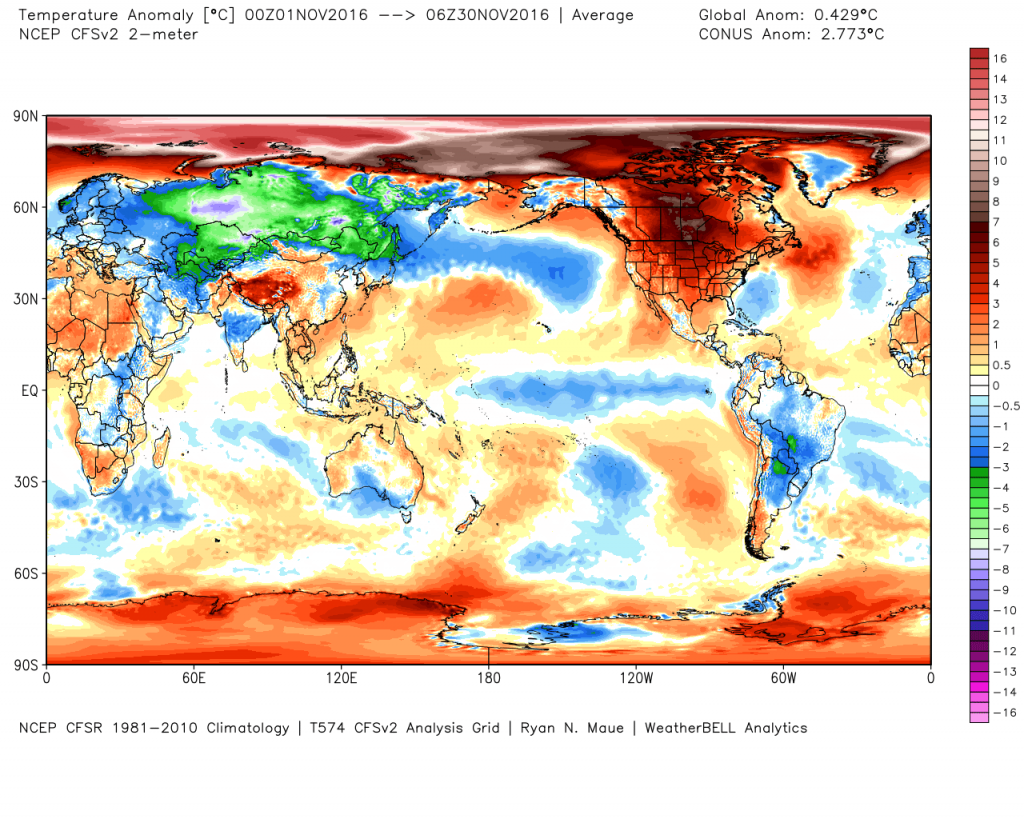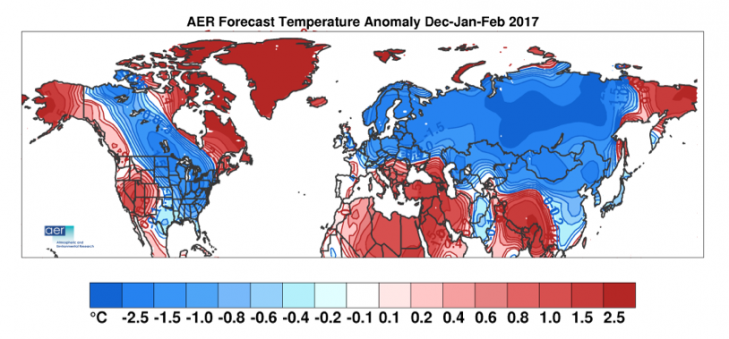30 November 2016
The Warm November May Be Setting Us Up For a Cold Winter
Posted by Dan Satterfield
The Arctic Sea ice continues to run at record lows, and this has potentially large implications on the winter ahead. Instead of white ice reflecting what little sunlight is available north of 60 degrees, we have ocean water rapidly losing its heat into the atmosphere of the High Arctic. The ice that’s usually there now acts as an insulator to hold in the heat, but not this year!
How all this extra heat is changing the global circulation is the subject of a ton of research, but the physics is clear, it must be doing something. It is very possible that it could actually make some areas of Europe and North America much colder and snowier this winter, and the reason is the polar vortex, and what we call Rossby waves in the atmosphere. The video below hosted by my friend Dr. Jennifer Francis is a nice basic (without the maths) tutorial on Rossby waves!

Much of North America had an incredibly warm November. Record warmth in many spots. We will have the official climate data in a couple of weeks.
 Look at the temps. compared to average for the planet over the last 30 days. Note the extreme cold across Europe and Asia. The snowfall there was way above normal in October, and research by Dr. Judah Cohen has shown a link between snowfall in October, and colder than normal winters in Europe and the Northeast U.S. The extra heat going into the High Arctic may also be splitting the polar vortex, and this can also lead to cold air in the high latitudes getting shoved southward over the continents.
Look at the temps. compared to average for the planet over the last 30 days. Note the extreme cold across Europe and Asia. The snowfall there was way above normal in October, and research by Dr. Judah Cohen has shown a link between snowfall in October, and colder than normal winters in Europe and the Northeast U.S. The extra heat going into the High Arctic may also be splitting the polar vortex, and this can also lead to cold air in the high latitudes getting shoved southward over the continents.
The early snows in Siberia, and Eastern Europe, have led to Cohen forecasting a cold and snowy winter over much of North America, but how the loss of Arctic Sea ice will play into the picture, seems less certain. We synoptic forecasters are following the research by Cohen, and Dr. Jennifer Francis closely, and it will be interesting to see how well the forecast by Cohen performs this year. We also understand that failure can be a better teacher than success.

Science is about hypothesis testing, and this forecast by Dr. Cohen is exactly that. It’s rather different from other winter forecasts (from NOAA etc.). If it comes out well, then we may have a better understanding of how the atmosphere works.
The problem with long-range forecasts is that there are a multitude of other factors, most linked to ocean temperatures, that can override one particular signal. Cohen’s research though is important and lead to better long-range winter forecasts, and most importantly, a better understanding of how the rapidly warming planet and disappearing ice will affect our weather. It seems that we forget the biggest risk we are facing as we fiddle with our climate: the surprises. Think of an old, but reliable, refrigerator, that has been working for years. Then someone starts fiddling with the thermostat….
That is what we are doing to the stable climate we’ve had over the last ten thousand years, by burning fossil fuels at an ever-increasing rate. No amount of fake news/ propaganda on Facebook or Twitter will change that.
The physics just does not care.



 Dan Satterfield has worked as an on air meteorologist for 32 years in Oklahoma, Florida and Alabama. Forecasting weather is Dan's job, but all of Earth Science is his passion. This journal is where Dan writes about things he has too little time for on air. Dan blogs about peer-reviewed Earth science for Junior High level audiences and up.
Dan Satterfield has worked as an on air meteorologist for 32 years in Oklahoma, Florida and Alabama. Forecasting weather is Dan's job, but all of Earth Science is his passion. This journal is where Dan writes about things he has too little time for on air. Dan blogs about peer-reviewed Earth science for Junior High level audiences and up.